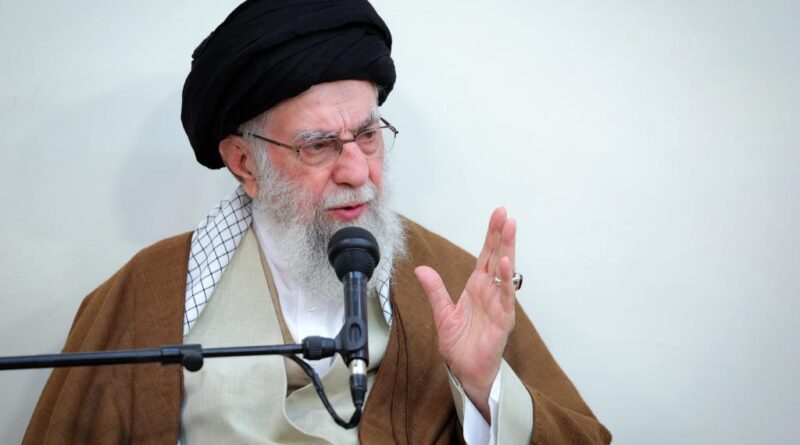Hold Iran accountable for its actions.

The Iranian government exhibits a compulsive obsession: an obsessive hatred towards Israel and the United States, a relentless persecution of women, and a ruthless targeting of dissidents, Jews, and politicians globally.
Even as the proxy forces of the Revolutionary Islamic Government wane, undermining the mullahs’ perceived strength, they remain fixated on their goals.
Therefore, it is imperative for the United States to adopt its own obsession—one that applies maximum pressure on the Iranian regime.
On November 8, three individuals were charged in a New York court related to an Iranian-planned assassination attempt on President-elect Donald Trump. Additionally, former Secretary of State Mike Pompeo, former Defense Secretary Mark Esper, and former National Security Adviser John Bolton have all found themselves on Iran’s hit list.
In late October, the regime executed Jamshid Sharmahd, a 69-year-old Iranian dissident who also held German citizenship and was residing in the U.S. He was kidnapped in 2020 during a layover in Dubai, taken to Iran, and imprisoned on dubious charges.
This was not Germany’s first encounter with the Iranian regime’s penchant for targeting dissidents abroad. In 1992, under Tehran’s orders, three members of the Democratic Party of Iranian Kurdistan along with a supporter were murdered at a Berlin restaurant.
Such practices have been a hallmark of the regime since its rise to power.
In 1980, via an American convert to Islam, the mullahs executed regime critic Ali Akbar Tabatabai in his Maryland home.
In 1994, they orchestrated a terrorist attack on a Jewish community center in Buenos Aires, which claimed 85 lives and injured over 300 others.
In 2019, the Islamic Revolutionary Guard Corps lured Iranian dissident Ruhollah Zam, who was residing in France, to Iraq under false pretenses to speak with Grand Ayatollah Ali Sistani. There, he was apprehended by Iraqi authorities, handed over to the IRGC, and returned to Iran, where he was subsequently executed.
A scholar who maintains a database of Iran’s international operations has documented 105 attacks conducted by Iran from 1980 to 2022.
Remarkably, over a fifth of these incidents occurred after the killing of Qassem Soleimani, head of the IRGC-Quds Force, in January 2020, including six strikes on U.S. soil.
In other words, there has been a discernible increase in activity.
One of the most alarming cases is the continued harassment of Masih Alinejad, an activist who openly defied the Iranian regime’s hijab mandate. She fled Iran and now lives in exile in Brooklyn.
In 2021, the U.S. Department of Justice indicted four Iranian nationals for a plot to kidnap Alinejad and smuggle her to Venezuela, from where she would be taken to Iran for execution.
A year later, a doorbell camera at Alinejad’s residence recorded a man loitering on her porch. When police stopped him for a traffic violation, they discovered a loaded AK-47 and 66 rounds of ammunition in his possession.
This occurrence unfolded in the heart of Brooklyn.
Iran’s tentacles of terror extend everywhere. The regime operates as a terrorist mafia disguised as a governing body.
Its violent actions, through its proxy Hamas, targeted Israel on October 7, including an assault at the Nova music festival, which I attended with friends.
Moreover, the regime’s attention turned close to home again when state-controlled PressTV published a hit piece in October about my organization, the Combat Antisemitism Movement.
For me, this serves as a badge of honor. If the regime considers you an enemy, you must be doing something worthwhile.
However, this also indicates that Tehran is acutely aware of my organization—and, by extension, me.
As a vocal critic of the regime and a proud young woman of Iranian dissent unafraid to express my views, I represent the very type of individual the mullahs despise most.
The Iranian regime transcends being merely an Israeli concern. It is not confined to the Middle East. It poses a threat to the entire world.
The brutality of the regime warrants a revival of President Trump’s maximum pressure policy, aimed at dismantling the regime’s capacity to spread terror across the region and globally. This is the only appropriate response.
Natalie Sanandaji is a survivor of the Oct. 7 Nova music festival massacre and serves as a public affairs officer for the Combat Antisemitism Movement.



